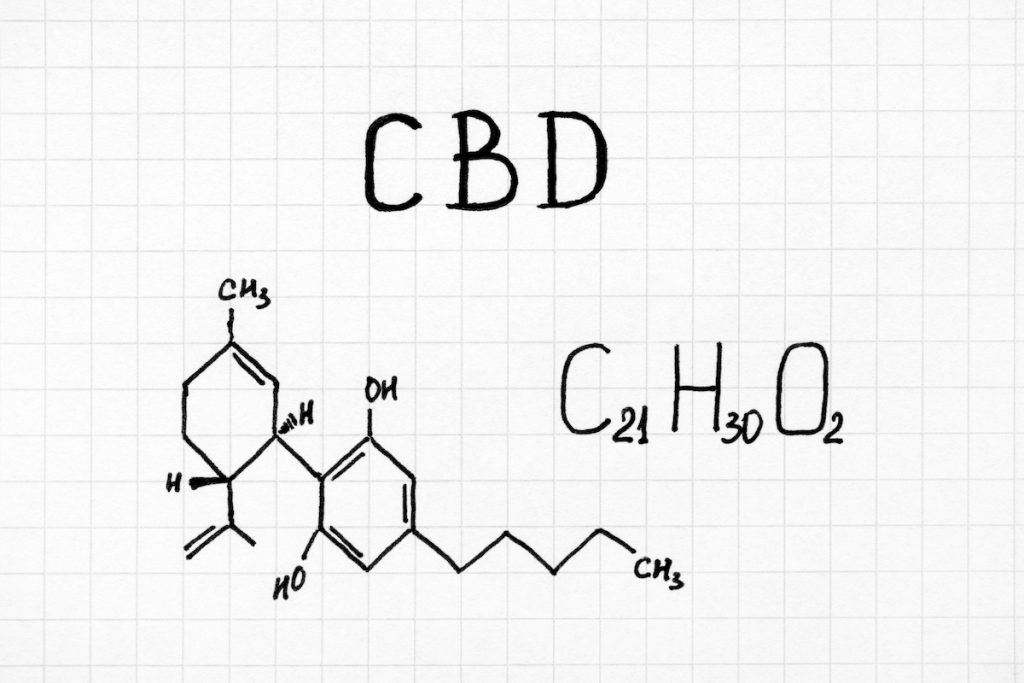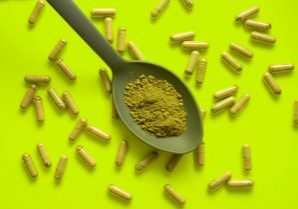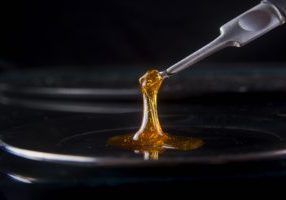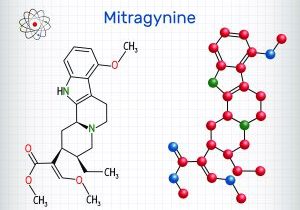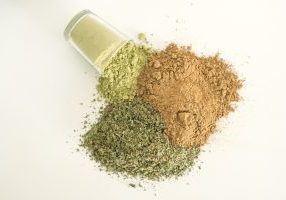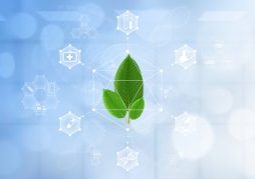Cannabidiol, also known as CBD, has become a buzzword of sorts with the recent regulation and legalization of marijuana in many states. While medical marijuana has been around for decades, the common usage of CBD has people who know nothing about cannabis wondering what these three letters are all about.
CBD is one of the many chemical compounds found in cannabis, and its use is on the rise. To understand why and how it’s gaining such popularity, we’ll need to get into the CBD definition, common uses, proposed benefits, and more. Let’s get to it!
What Is CBD?
CBD is a cannabinoid. A cannabinoid is a specific type of chemical compound that can be found in cannabis, also known as marijuana or hemp. Cannabis plants have over 100 different cannabinoids in them, and these compounds cause various effects to our bodies when ingested or smoked.
Our bodies also produce cannabinoids, called endocannabinoids, and we have what is known as an endocannabinoid system (ECS). When cannabinoids are made by our bodies or ingested, they bind to receptors. These bonds cause different physiological and mental effects such as sleepiness, hunger, relaxation, and more. The receptors in the ECS have been linked to the nervous, digestive, and immune systems.
How Is CBD Used?
CBD is most commonly used in the form of CBD oil. The CBD is extracted from a cannabis plant, and then it is put into a carrier oil such as hemp seed, coconut, or avocado oil. The specific strain of cannabis that is used to extract the CBD, along with a host of growing and processing conditions, determine the strength, but the dilution in a carrier oil also affects the concentration of CBD in the finished product.
There are some CBD products that are known as full spectrum CBD oils. These oils contain not only CBD but also other beneficial cannabinoids as well as terpenoids and flavonoids, compounds that give plants their distinct aromas and flavors. The blend of CBD with other powerful chemical compounds creates a more well-rounded effect than CBD isolate in many cases.
CBD oil is taken in a number of different ways:
- • Internally (swallowed, mixed into food or drink)
- • Sublingually (under the tongue)
- • Vaporized (using a vape pen or other vaporizer device)
- • Topically (on the skin)
Who Uses CBD?
While using marijuana has been stigmatized as sign of being lazy, the broad array of people across all demographics who consume CBD products today prove that CBD use is not synonymous with slacking.
Doctors, lawyers, mothers, fathers, children, veterans, nurses, teachers, and more have all been known to use CBD. There are, of course, regulations on the types of CBD and times when using CBD is allowed in various professions, but most CBD products do not cause the psychoactive high that is characteristic of smoking marijuana.
Why is that?
Why Doesn’t CBD Get You High?
Most CBD products do not cause a psychoactive high that you would get if you were smoking full-leaf marijuana. That is because CBD is a non-intoxicating compound. The high that people associate with cannabis is largely caused by THC.
CBD oils on the market today are high in CBD and other beneficial cannabinoids and extremely low in THC. In fact, to be considered legal, CBD must be extracted from hemp plants that have naturally low THC levels, not from resinous marijuana plants that produce high concentrations of THC. And, all CBD products must keep THC percentage below 0.3% threshold.
Some media coverage and assumptions about those who use CBD still put out the idea that CBD is an illicit substance, but that misconception is gradually being changed with the normalization of CBD and its benefits.
What Are The Alleged Benefits of CBD?
There are a lot of benefits that people say CBD can give you with regular use. While many of these benefits have been shown in human clinical trials, there hasn’t been enough research or evidence done to fully confirm that the effects are truly caused by the CBD.
Anecdotally, however, there is overwhelming evidence to support CBD as an herbal product which can help with many different things. There are more and more places documenting the possible benefits of CBD, and you’ll likely discover helpful information by researching organizations that study CBD and advocate for its use.
Studies About CBD
There have been studies done for all of these benefits, and the evidence is piling up to support CBD as an overall wellness product. We encourage you to find some trusted sources of actual scientific information and explore the studies that have been done on CBD and its possible applications.
You’ll probably find that the potential uses for CBD oil and other CBD products are incredibly varied. As this interesting substance is studied and understood more deeply, its power will be able to be incorporated into many applications.
Is CBD Legal and Safe To Use?
Before the 2018 Farm Bill was passed, CBD oil was legal in at least 30 states, most of which had legalized medical and/or adult-use cannabis. Many states had their own sets of rules and regulations about where you can buy the oil and how it can be used.
CBD’s legal status seemed to shift when the Farm Bill was made law, because it explicitly legalized industrial hemp, the plant from which most CBD products are extracted. Additionally Pharmaceutical-grade CBD, in the form of Epidiolex, was recently approved by the FDA as a prescription available to children with intractable seizure disorders. Still, it’s unclear if, when, and how the FDA will decide to handle CBD products.
The biggest danger that you should be aware of when using CBD is the current lack of regulation. Because CBD-based products are still relatively new, there are numerous companies out there that make CBD products. Many of these companies do not yet have the appropriate safety and testing practices in place.
So, you should be careful to choose a reliable vendor that tests and monitors their products for safety. As sad as it is, there are companies who are willing to lie about CBD percentages, carrier oils, and more in order to make money, so finding a trustworthy supplier is important.

